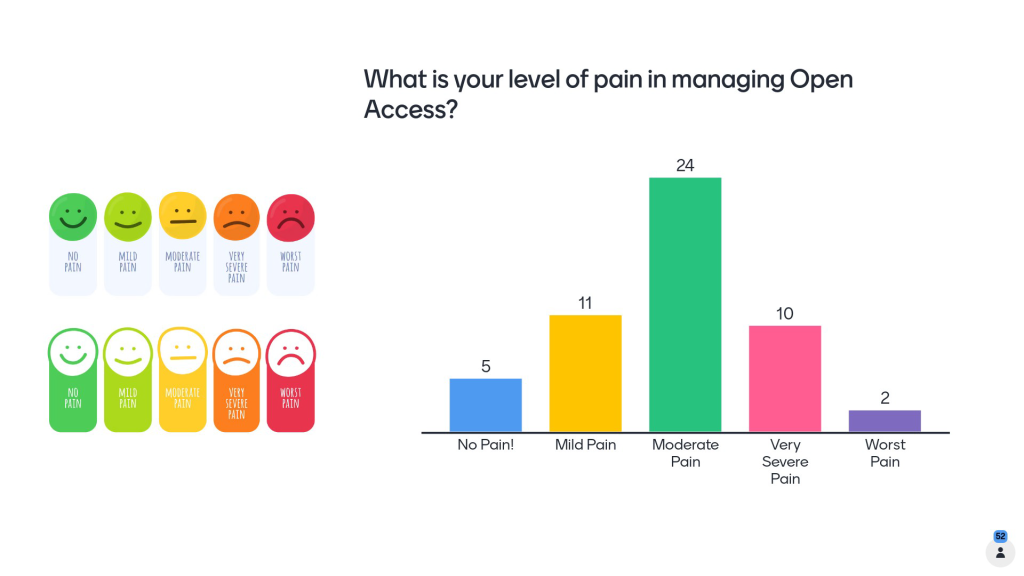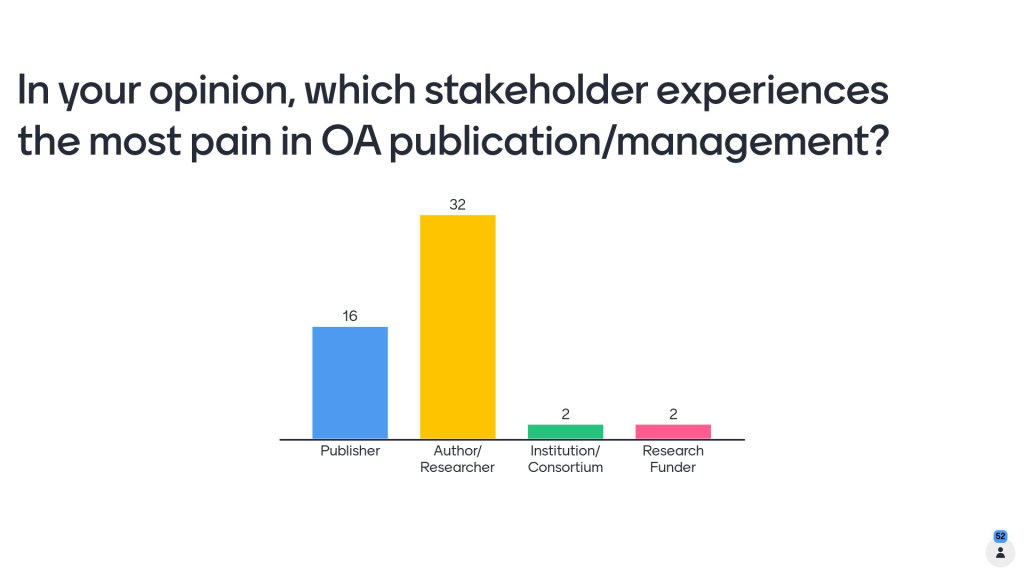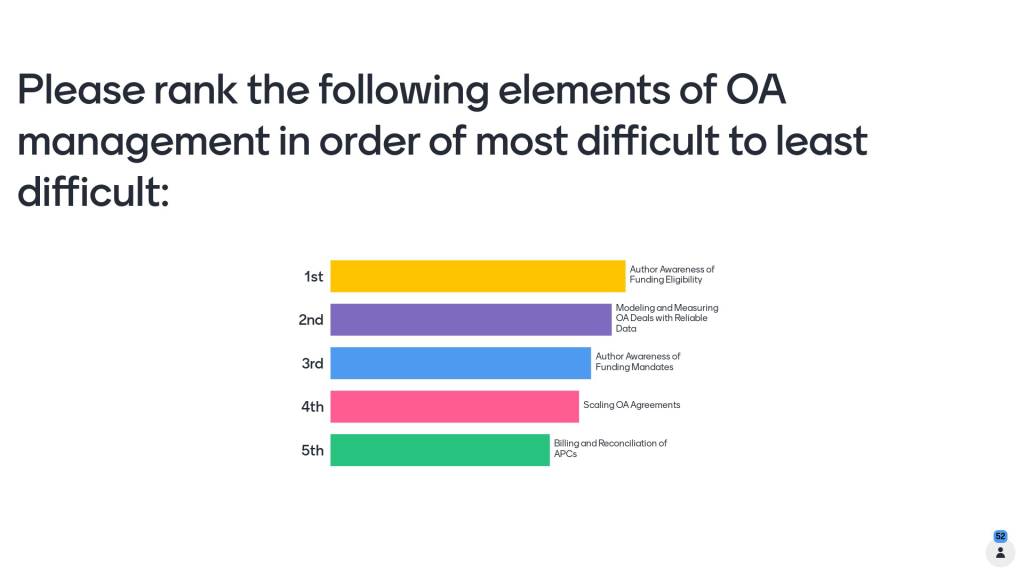At the recent SSP Annual Meeting in Portland, Oregon, a cross-functional panel considered the challenge of “Solving for OA/UX: The Powerful Potential in Improving User Experience (UX).”
Drawing on her work as a scholarly author and as Research Impact and Open Scholarship Librarian, Indiana University Bloomington, Willa Tavernier moderated an interactive session with three panelists. Together, they reflected on successful collaborations that streamline OA processes, remove unnecessary work for the researchers, and enable cross-stakeholder transparency.
A real-time audience poll first quizzed the room on their own “level of pain (experienced) in managing Open Access.” Half the room who voted said they felt moderate pain, while another quarter said they experienced very severe pain – or worse.
 The 75 session attendees were next asked to choose which “stakeholder experiences the most pain in the OA publication process.”
The 75 session attendees were next asked to choose which “stakeholder experiences the most pain in the OA publication process.”
“The low pain ranking given for institutions/consortium may indicate a need for better communication between publishers and institutions on the pain points they experience and what it will take to solve them,” observed Willa Tavernier. “Transformative Agreements may lessen the friction but not every institution has a TA and even for those that do, TAs don’t cover all Open Access publishing.”
 “Author/Researcher was the clear loser. This is NOT good,” noted Dr. Jason Price, Research and Scholarly Communication Director, SCELC Library Consortium. “When authors lose, everyone loses.”
“Author/Researcher was the clear loser. This is NOT good,” noted Dr. Jason Price, Research and Scholarly Communication Director, SCELC Library Consortium. “When authors lose, everyone loses.”
CCC’s Jamie Carmichael, Sr. Director, Information and Content Solutions, agreed: “It’s no surprise authors ranked #1, as there is a collective effort ongoing to reduce author friction in OA administration. Improving the author experience is the number one priority on CCC’s roadmap for RightsLink for Scientific Communications, which reflects input from the academic publishers and institutions we serve.
A poll question next asked the SSP audience to rank the elements of OA management from least to most difficult.
 “The first and second highest rated issues – ‘funding eligibility awareness’ and ‘modeling and measuring OA deals’ – seem to be two sides of the same problem,” according to David Haber, Publishing Operations Director, American Society for Microbiology.
“The first and second highest rated issues – ‘funding eligibility awareness’ and ‘modeling and measuring OA deals’ – seem to be two sides of the same problem,” according to David Haber, Publishing Operations Director, American Society for Microbiology.
“If I am an author, I have no idea what deals publishers can give me for my great research,” he explained. “And as a publisher, I have difficulty knowing that the great research that I just accepted is written by someone who is entitled to a special offer” on an article processing charge.
“Author awareness of funding eligibility – identified as the most difficult element of OA management – has a number of technical and timing based solutions available, at least under Read & Publish agreements. The community of stakeholders should make this a priority,” said Dr. Jason Price.
“I think the reason we see most respondents indicating only ‘moderate pain’ over Open Access management is that business operations supporting these OA models have evolved over the last few years, thanks to greater stakeholder collaboration and advancement in underlying infrastructure,” concluded CCC’s Jamie Carmichael.


